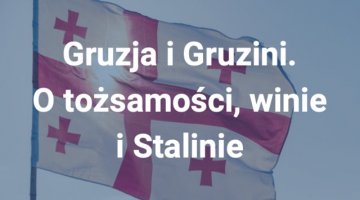Georgia: President Margvelashvili is accumulating political capital
On 29 April the Georgian sports minister Levan Kipiani handed in his resignation. Since he was the seventh minister in the government that has been replaced since its establishment in October 2012, the Georgian constitution requires a motion of confidence in the government be voted on. On 30 April Prime Minister Irakli Garibashvili announced the composition of a new Georgian Dream government (besides the sports minister, the ministers for defence and environmental protection were replaced) which, according to coalition politicians, was to be approved by parliament the same day. However, President Giorgi Margvelashvili unexpectedly postponed it using the seven day term granted in the constitution. This made it impossible to immediately vote on the composition of the government in parliament. The president criticised hasty actions of the coalition aimed at reshuffling the government and the unexpected change in the position of the defence minister (Tina Khidasheli is set to become the new defence minister). The president deemed such frequent replacements (this had been the third change in this position in six months) in the position of the defence minister as detrimental to Georgia’s international image.
Commentary
- Despite the fact that Margvelashvili has delayed the process of forming the new government, it will probably be approved this week and the confusion surrounding its establishment will most likely not turn into a serious political conflict. Nevertheless, this issue proves that the present non-transparent political structure in Georgia is becoming increasingly problematic and that the country’s internal situation is volatile. Formally, the Georgian Dream coalition rules independently (having a majority in parliament, the government and the president) and the opposition is marginalised. However, real power lies not in the hands of those who hold the most important positions in the country but to the former prime minister Bidzina Ivanishvili who is at the helm of the country despite not officially holding any position. Neither the government nor the ruling party are autonomous and they are entirely at Ivanishvili’s disposal, and political processes and the decision making system are based on non-transparent, behind-the-scenes deals. The continuation of this structure will generate tensions as the parliamentary election approaches (autumn 2016). Support for Georgian Dream in society is faltering and the socio-economic situation in the country is deteriorating (including a 10% fall in trade, with exports having fallen by 27.7% in the first quarter of the year, and the depreciation of the lari at the end of 2014).
- In this situation President Margvelashvili is unexpectedly strengthening his position. He does not have his own political base (according to Ivanishvili’s plans, Margvelashvili was supposed to be a political puppet) and the constitution does not grant him large prerogatives. However, against a backdrop of ruling coalition politicians deprived of real power, he is emerging as an independent reviewer of the government who distances himself both from Ivanishvili and from party disputes (within Georgian Dream and the opposition). Furthermore, he is creating an image of being a guardian of the constitution, the rule of law and of Georgia’s pro-European orientation and of being unburdened with the costs of current politics. It cannot be ruled out that Margvelashvili, based on his political capital, may play an important role in the run up to the election or if there were to be a political crisis in Georgia.




